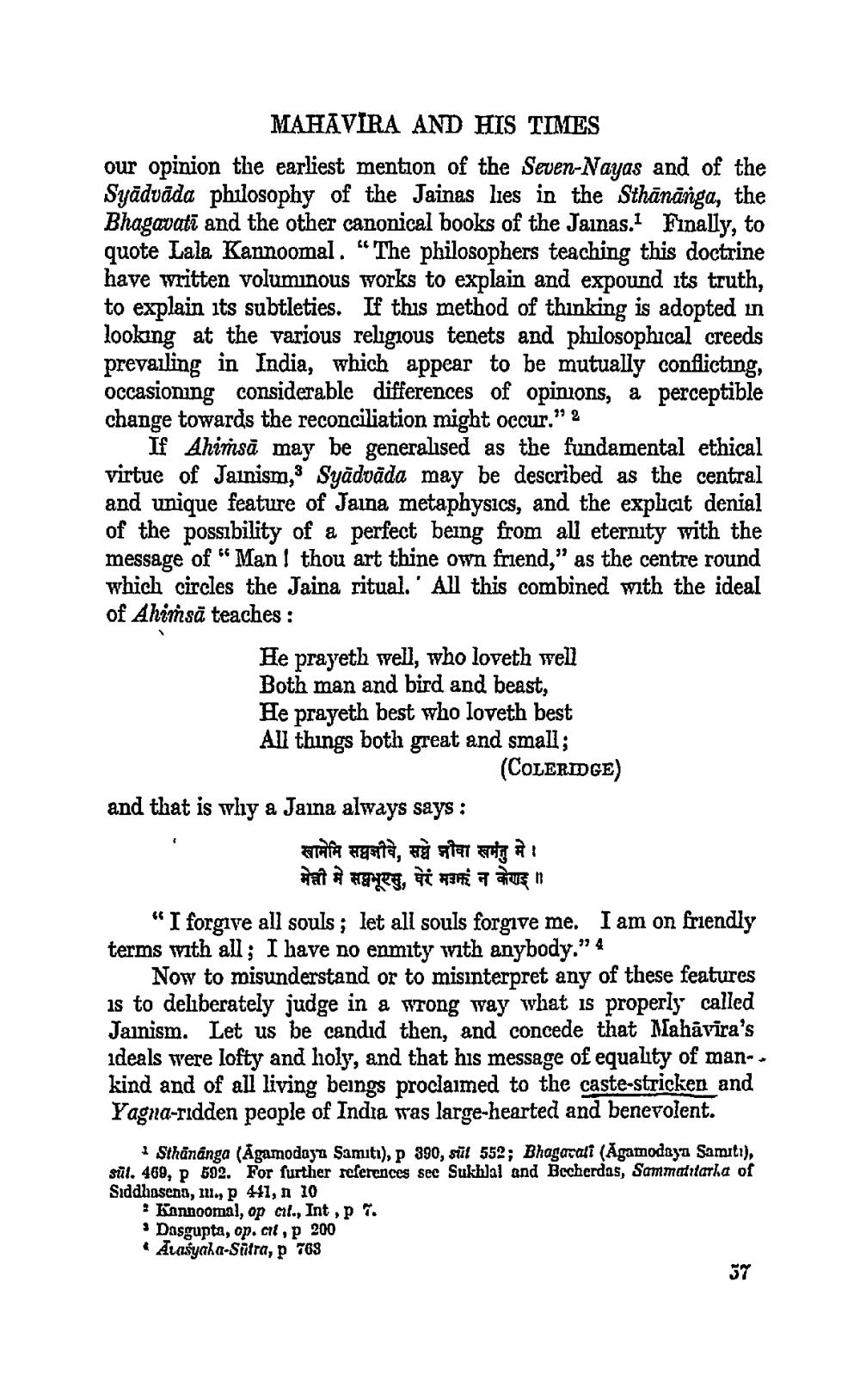________________ MAHAVIRA AND HIS TIMES our opinion the earliest mention of the Seven-Nayas and of the Syaduada philosophy of the Jainas lies in the Sthananga, the Bhagavati and the other canonical books of the Jainas.1 Finally, to quote Lala Kannoomal. "The philosophers teaching this doctrine have written voluminous works to explain and expound its truth, to explain its subtleties. If this method of thinking is adopted in looking at the various religious tenets and philosophical creeds prevailing in India, which appear to be mutually conflicting, occasioning considerable differences of opinions, a perceptible change towards the reconciliation might occur." 2 If Ahimsa may be generalised as the fundamental ethical virtue of Jainism, Syaduada may be described as the central and unique feature of Jaina metaphysics, and the explicit denial of the possibility of a perfect being from all eternity with the message of "Man I thou art thine own friend," as the centre round which circles the Jaina ritual.' All this combined with the ideal of Ahimsa teaches : He prayeth well, who loveth well Both man and bird and beast, He prayeth best who loveth best All things both great and small; (COLERIDGE) and that is why a Jaina always says: खाममि सधजीवे, सच्चे जौवा खमंतु मे। मेती में सबभूरसु, घरं मग्न न केणइ / "I forgive all souls; let all souls forgive me. I am on friendly terms with all; I have no enmity with anybody." 4 Now to misunderstand or to misinterpret any of these features is to deliberately judge in a wrong way what is properly called Jainism. Let us be candid then, and concede that Mahavira's ideals were lofty and holy, and that his message of equality of man-. kind and of all living beings proclaimed to the caste-stricken and Yagna-ridden people of India was large-hearted and benevolent. Sthananga (Agamodoya Samiti), p 390, stil 552; Bhagavatt (Agamnodaya Samiti), stil. 469, P 502. For further references see Sukhlal and Becherdas, Sammadlarla of Siddhasena, III. p 411, n 10 : Konnoomnl, op al., Int , p 7. Dasgupta, op. cit. p 200 Alasyaha-Stitra, p 769 to deliberately judge then and concede that of man--




